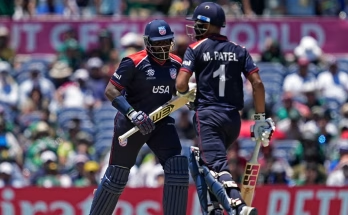The National Basketball Association (NBA) is one of the most iconic sports leagues in the United States and the world. Known for its electrifying games, superstar athletes, and global influence, the NBA has transcended its role as a sports organization to become a symbol of culture, entertainment, and social impact. With roots tracing back to the mid-20th century, the league has grown into a multibillion-dollar industry that shapes sports and popular culture alike.
The Birth of the NBA
The NBA was founded on June 6, 1946, as the Basketball Association of America (BAA). Three years later, it merged with the National Basketball League (NBL) to form the National Basketball Association. Initially comprising just 17 teams, the league underwent various transformations, including expansions, relocations, and the introduction of the shot clock in 1954, a pivotal innovation that revolutionized the game by promoting faster and more dynamic play.
Early stars like George Mikan dominated the league during its infancy, showcasing the potential of basketball as a spectator sport. By the 1960s, players such as Bill Russell and Wilt Chamberlain elevated the game to new heights, combining athleticism with strategy and skill.
The Rise of Superstars
The NBA truly began to capture the nation’s imagination in the 1980s, an era often referred to as the league’s golden age. This period was marked by fierce rivalries, most notably between the Boston Celtics and the Los Angeles Lakers. Larry Bird and Magic Johnson, the respective faces of these franchises, not only brought a new level of competitiveness to the league but also demonstrated how charisma and personality could enhance the sport’s appeal.
The 1990s saw the emergence of Michael Jordan, widely regarded as the greatest basketball player of all time. Jordan’s combination of skill, competitiveness, and marketing savvy turned the Chicago Bulls into a global brand and the NBA into a global phenomenon. Under his leadership, the Bulls won six championships in eight years, a feat that cemented the NBA’s place in American sports history.
A Global Phenomenon
The NBA’s influence extends far beyond the United States. Commissioner David Stern, who led the league from 1984 to 2014, played a crucial role in globalizing basketball. Initiatives such as televising games internationally, organizing exhibition matches abroad, and fostering talent development programs in countries like China and Africa expanded the NBA’s reach.
Today, players from all corners of the globe grace the NBA courts. International stars such as Dirk Nowitzki, Manu Ginóbili, and Yao Ming paved the way for current global icons like Giannis Antetokounmpo, Luka Dončić, and Nikola Jokić. These players not only enrich the league’s talent pool but also draw fans from their home countries, creating a diverse and passionate global fan base.
Cultural Impact
The NBA is more than just a sports league; it is a cultural juggernaut. Players are celebrated as much for their off-court personas as for their on-court performances. Fashion, music, and social media have become integral parts of the NBA experience. Stars like LeBron James and Kevin Durant are not just athletes but also influencers, entrepreneurs, and activists.
Basketball has also left an indelible mark on music and fashion. Hip-hop culture, in particular, has had a longstanding relationship with the NBA. From Allen Iverson’s tattoos and braids to the pregame runway-style outfits of today’s players, the league has become a platform for individual expression.
Social Justice and Activism
In recent years, the NBA has been at the forefront of social justice movements. Players and coaches have used their platforms to address issues such as racial inequality, police brutality, and voter suppression. The league itself has supported these efforts, allowing players to wear messages of social justice on their jerseys and even pausing the 2020 season in solidarity with the Black Lives Matter movement.
LeBron James, one of the most vocal advocates, launched initiatives such as “More Than A Vote” to combat voter suppression. The Milwaukee Bucks led a player-driven protest during the 2020 playoffs, underscoring the league’s unique position as a conduit for societal change.
Challenges and Opportunities
Despite its success, the NBA faces several challenges. Declining television ratings in the United States have raised concerns about fan engagement, particularly among younger audiences. The rise of streaming platforms and shifts in viewing habits have prompted the league to innovate, offering digital subscriptions and integrating interactive technologies to attract viewers.
Another challenge is maintaining competitive balance. The dominance of superteams—where multiple star players join forces on a single roster—has led to concerns about parity. However, recent seasons have seen greater unpredictability, with teams like the Milwaukee Bucks and the Denver Nuggets achieving success through well-rounded rosters rather than superstar conglomerates.
Off the court, the NBA continues to navigate its complex relationship with China. While the Chinese market is a significant revenue source, political tensions and controversies have occasionally strained this partnership, requiring the league to balance its financial interests with its values.
The Future of the NBA
The NBA’s future looks bright, driven by innovation, global growth, and an ever-expanding pool of talent. Initiatives like the NBA Africa league and the G League Ignite program aim to develop talent and expand the league’s footprint. Technology also plays a significant role, with virtual reality and augmented reality promising to revolutionize the fan experience.
Moreover, the league’s commitment to diversity, inclusion, and social responsibility ensures that it remains a powerful voice in shaping society. As younger stars like Ja Morant, Zion Williamson, and Jayson Tatum emerge as the faces of the league, the NBA is well-positioned to captivate future generations.
Conclusion
The NBA is not just a basketball league; it is a reflection of American culture, a driver of global unity, and a platform for change. From its humble beginnings to its current status as a global powerhouse, the league has consistently evolved to meet the demands of its fans and the world at large. As it continues to push boundaries on and off the court, the NBA’s legacy as a cultural and athletic phenomenon remains firmly intact.




